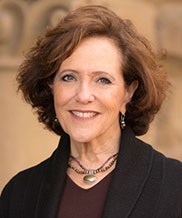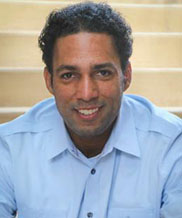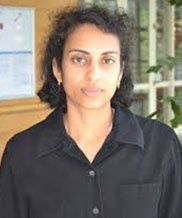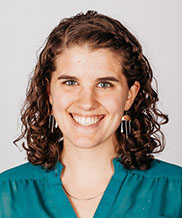AI for Culturally Relevant Interactions
The practical and responsible limits of artificial intelligence are still in their early stages of development.
A better understanding of the relationship between identity, culture and AI technologies can lead to dramatic improvements in how consumers, students and patients relate to information and to content, devices and services. A deeper understanding of cultural traditions, history, and relevance can have a broad and far-reaching impact on the interactive technologies of the future, particularly in conjunction with storytelling and narrative elements.
This mediaX Forum will convene academia and industry thought leaders in the emerging arena of cultural and societal interactions with big data, machine learning and artificial intelligence.
Our goal is to move the human-AI relationship forward by bringing industry trailblazers together with Stanford cross-disciplinary thought leadership to examine and evolve concepts, technologies and practice used to integrate culture and identity with artificial intelligence and robots.
This forum includes keynotes and panel presentations of horizon research, as well as the opportunity to explore challenges and opportunities through discussion between academic and industry Artificial Intelligence and Machine Learning experts, coupled with practitioners seeking new solutions for society today and in the future.
Initial Questions to be considered:
*What cultural issues and concerns are critical for AI applications?
*How will consumers’ relationships to brands be shaped by culture in AI storytelling?
*How does culture influence perception of human rights and privileges in the digital world?
*How can traditions, histories, and collective experiences shape an individual’s experience of AI products?
*What elements of human culture can be emulated by artificially intelligent entities, particularly in a world of such varied human experiences?
CLICK HERE for the forum schedule
This Forum is made possible by mediaX members and special contributions from:
 IVOW, a mediaX member. IVOW is a group of multimedia storytellers and data scientists merging timeless principles of storytelling with Artificial Intelligence and culture, with a vision to build AI storytelling applications that harvest data on world cultures, history, and traditions to tag more meaningful datasets for machine intelligence.
IVOW, a mediaX member. IVOW is a group of multimedia storytellers and data scientists merging timeless principles of storytelling with Artificial Intelligence and culture, with a vision to build AI storytelling applications that harvest data on world cultures, history, and traditions to tag more meaningful datasets for machine intelligence.
 Flybits empowers enterprises to connect with their customers more meaningfully through micro-personalized experiences, powered by contextual intelligence. Flybits aggregates disparate sources of relevant public and proprietary data without technical hassle, providing the platform for Fortune 500 organizations to build sophisticated and evolving customer engagement programs, across any channel and use case, with ease.
Flybits empowers enterprises to connect with their customers more meaningfully through micro-personalized experiences, powered by contextual intelligence. Flybits aggregates disparate sources of relevant public and proprietary data without technical hassle, providing the platform for Fortune 500 organizations to build sophisticated and evolving customer engagement programs, across any channel and use case, with ease.
 Baidu, Inc., is a multinational technology company focusing on artificial intelligence and Internet-related services and products.
Baidu, Inc., is a multinational technology company focusing on artificial intelligence and Internet-related services and products.
Never Miss An Event; Join Our Email Community
Details:
Mackenzie Room
Jen-Hsun Huang Engineering Center
475 Via Ortega, Stanford, CA 94305
9:00am-4:00pm
Presenters

Hazel Rose Markus is the Davis-Brack Professor in the Behavioral Sciences at Stanford University. Her research focuses on the role of self in regulating behavior and on the ways in which the social world shapes the self. Her work examines how cultures, including those of nation or region of origin, gender, social class, race, ethnicity, religion, and occupation, shape thought, feeling, and action.

Adam Banks is a Professor in the Graduate School of Education and the Faculty Director, Program in Writing and Rhetoric. He’s a committed teacher. Midnight Believer. A Slow Jam in a Hip Hop world. Cerebral and silly, outgoing and a homebody. Vernacular and grounded but academic and idealistic too. Convinced that Donny Hathaway is the most compelling artist of the entire soul and funk era, and that we still don't give Patrice Rushen enough love. He’s a crate digger, and DJ with words and ideas, and believes that the people, voices and communities we bring with us to Stanford are every bit as important as those with which we engage here at Stanford.

Rama Akkiraju is a Director, Distinguished Engineer, and Master Inventor at IBM’s Watson Division where she leads the AI mission of enabling natural, personalized and compassionate conversations between computers and humans. In her career, Rama has worked on agent-based decision support systems, electronic market places, and semantic Web services, for which she led a World-Wide-Web (W3C) standard. Rama has co-authored 4 book chapters, and over 50 technical papers. Rama has over dozen issued patents and 20+ pending. She is the recipient of 3 best paper awards in AI and Operations Research.

Angèle Christin is an assistant professor in the Department of Communication and affiliated faculty in the Sociology Department and Program in Science, Technology, and Society at Stanford University. She studies how algorithms and analytics transform professional values, expertise, and work practices. In a new project, she studies the construction, institutionalization, and reception of predictive algorithms in the U.S. criminal justice system.

Mariana Lin is the Head of Character for Sophia of Hanson Robotics, and was formerly creative director and lead writer behind Siri, overseeing personality and voice. A writer and editor for over 15 years, she authors a column Artificial Intelligentsia in the Paris Review on creative writing for AI, and writes poetry. She is currently collaborating on study on authenticity and AI at the Stanford Graduate School of Business. Lover of languages and mother to a non-verbal son, she is interested in the interplay of culture, personality, and human-AI communications.

Cory Kidd is the founder and CEO of Catalia Health. The company develops a hardware and software platform that uses a combination of psychology and artificial intelligence to engage patients through interactive conversations. These conversations happen through mobile, web, and interactive robotic interfaces; together these interfaces create a relationship that can reach patients at any time they need support. Dr. Kidd has been working in healthcare technology for nearly two decades.

Davar Ardalan, IVOW Founder and Storyteller in Chief. Davar has been a journalist in public media for 25 years, most of those at NPR News, where she designed stories anchored in multiculturalism and steeped in historical context. In 2015, her last position at NPR was senior producer of the Identity and Culture Unit. Realizing that there is a gaping hole in AI algorithms that will define our future stories, Davar created IVOW, whose AI software sifts through data on world cultures, traditions and history for modern consumer storytelling applications.

Albert Boyang Li is a Senior Research Scientist at Baidu Research, where he conducts research on Artificial Intelligence and Machine Learning. He's particularly interested in computational models for narrative structures, including visual and textual information. He believes story is a powerful tool for communication. His Computational Narrative Intelligence (CNI) aims to create intelligent machines that can understand and create stories, manage interactive narratives, and respond appropriately to stories told to them.

Annabell Ho is a PhD candidate in the Department of Communication at Stanford University. Her research focuses on the psychological effects of interacting with chatbots compared to other people, particularly in the context of emotional disclosure. She is largely interested in how the psychological dynamics that occur between people change when the interaction partner is a computer instead.

Andrea Gagliano is a Data Scientist working on visual intelligence research at Getty Images. Andrea works at the intersection between technology and creativity and is responsible for building data products that improve the workflows of both Getty Images photographers and customers. She harnesses the power of AI to inspire creatives and help them scale. Her graduate research at UC Berkeley investigated machine learning in creative acts including poetry and painting. She is the recipient of an award for her machine generated poetry.

Elodie Mailliet Storm is Senior Director of Strategic Development at Getty Images based in the Bay Area. In 2016, Elodie was named a JSK fellow in media innovation at Stanford University where she researched the monetization of photography in the age of social and search. Prior to this, she led content Partnerships and Business Development at Getty Images, where she oversaw content acquisition, strategy and partnerships with over 300 large media companies globally such as Vice, Conde Nast, National Geographic, amongst others. She is also at the origin of brand partnerships and crowdsourcing initiatives such as the Getty Images Instagram grant.

Ethan Watters is the author of Crazy Like Us: The Globalization of the American Psyche. A frequent contributor to The New York Times Magazine, Discover, Men's Journal, Details, Wired, and PRI's This American Life, Ethan has appeared on such national media as Good Morning America, Talk of the Nation, and CNN. He is a co-founder of the San Francisco Writers' Grotto, a cooperative writing workspace in San Francisco.